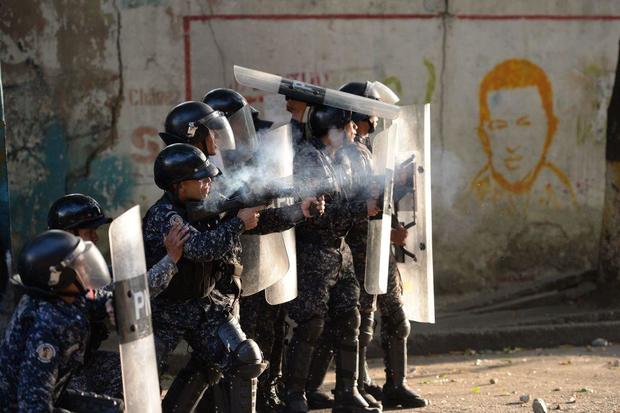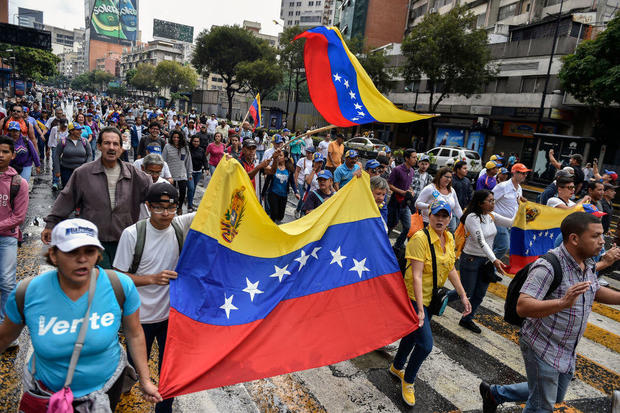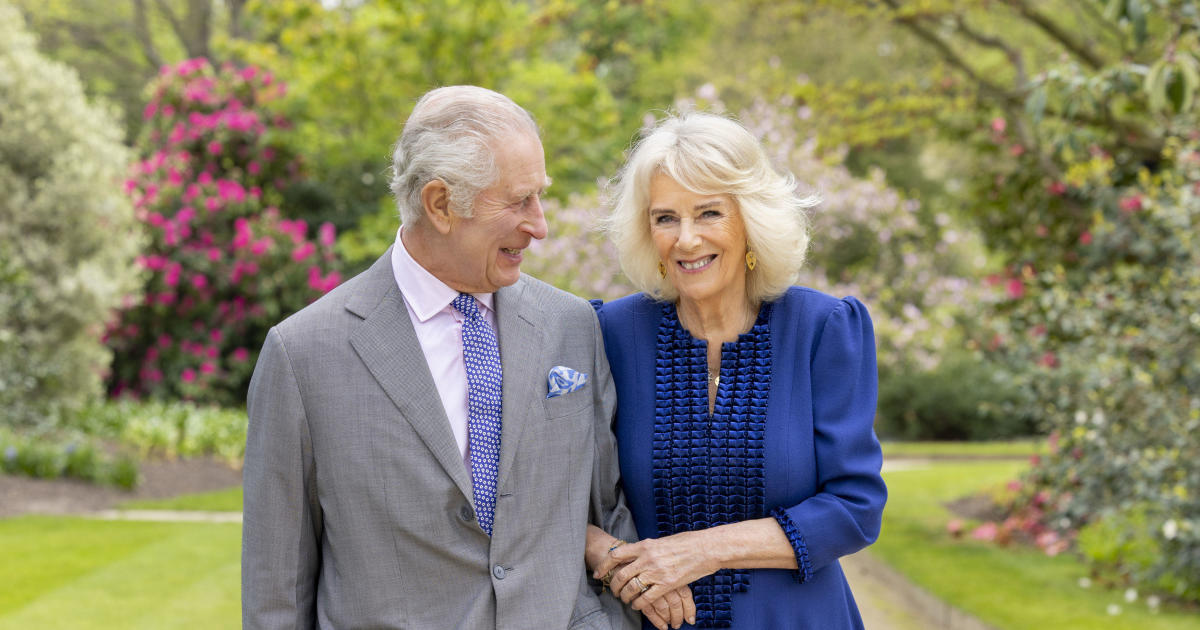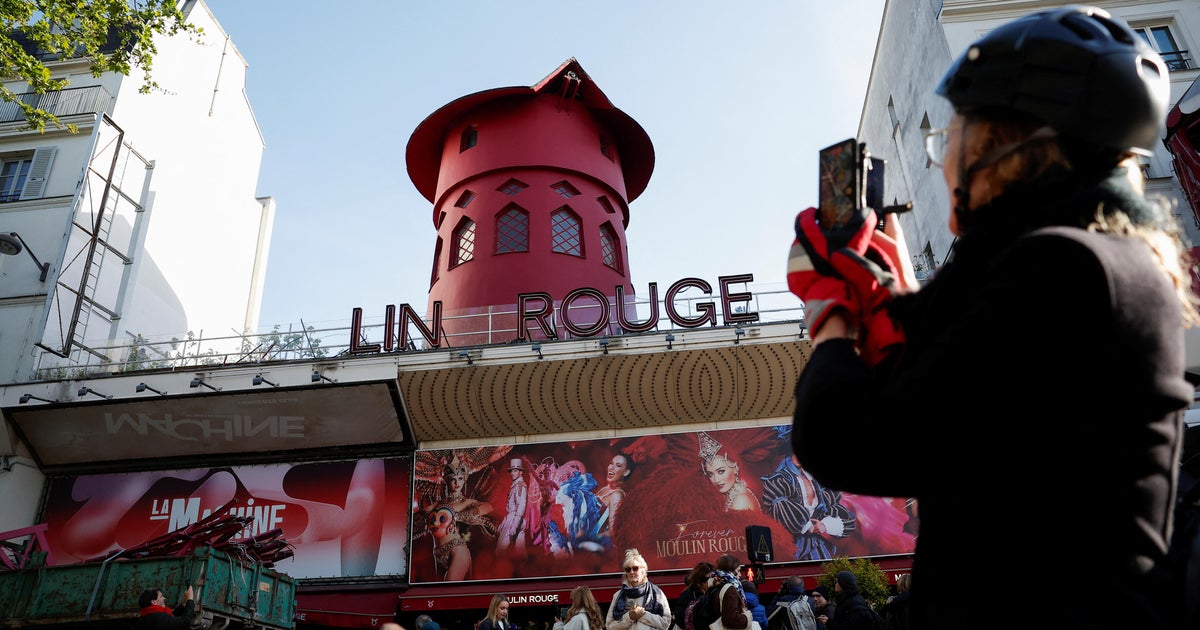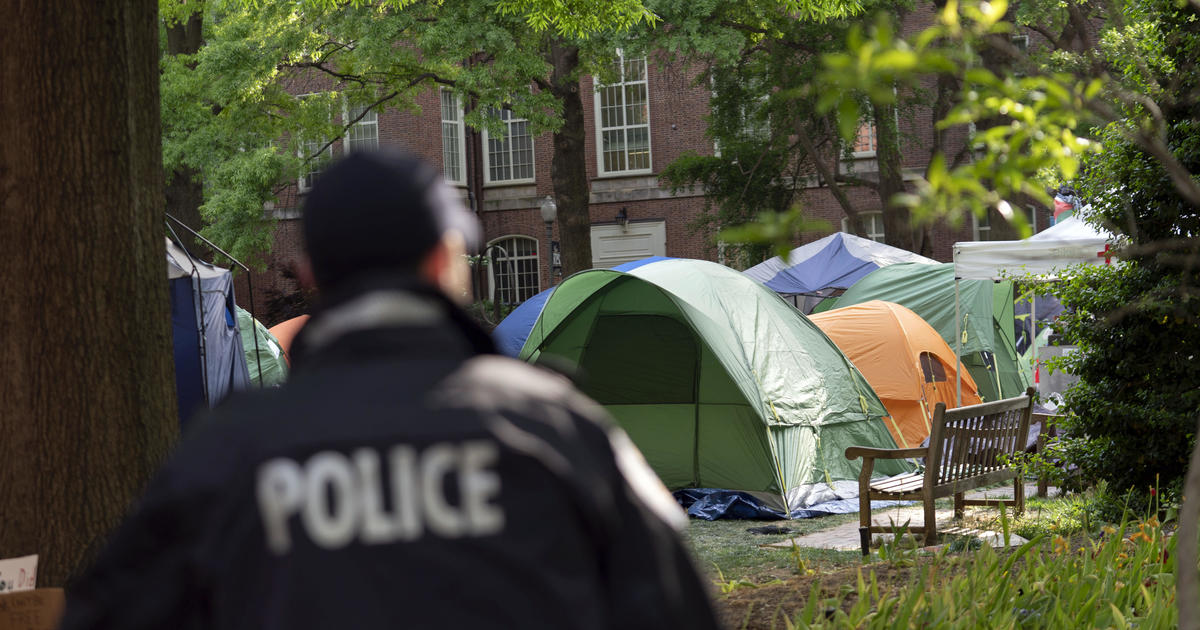Venezuela's U.S.-backed opposition movement takes to the streets
Caracas, Venezuela-- Venezuela's re-invigorated opposition faces a crucial test Wednesday as it seeks to fill streets nationwide with protesters in an appeal to the military and the poor to shift loyalties that until recently looked solidly behind President Nicolas Maduro's socialist government. The protests have been called to coincide with a historic date for Venezuelans - the anniversary of the 1958 coup that overthrew military dictator Marcos Perez Jimenez.
Government supporters are also expected to march in downtown Caracas in a rival show of strength.
The competing demonstrations will come after a whirlwind week that saw an uprising by a tiny military unit, fires set during protests in poor neighborhoods and the brief detention by security forces of the newly installed head of the opposition-controlled congress.
Pence backs opposition
Maduro has accused U.S. Vice President Mike Pence of trying to foment unrest after Pence released a video on Tuesday pledging support, in Spanish, for the planned demonstrations.
Pence said Venezuelans have the "unwavering support" of the United States in their effort to restore democracy to their country. In his video, Pence called Maduro a "dictator with no legitimate claim to power."
The vice president said the U.S. joined other "freedom-loving" nations in recognizing the popularly elected National Assembly as the "last vestige of democracy" in Venezuela.
He said he supported the decision by National Assembly president and opposition leader Juan Guaido to declare Maduro a "usurper" and call for the creation of a transitional government.
Guaido, the new president of the National Assembly, was dragged from an SUV just over a week ago by intelligence agents but quickly released amid an international outcry.
In the run-up to Wednesday's actions, the defiant 35-year-old lawmaker has crisscrossed Caracas attending outdoor assemblies known as "Open Cabildos" - for the revolutionary citizen councils held against Spanish colonial rule - pumping up crowds by arguing that Maduro must go for democracy to be restored.
Driving the crisis has been Maduro's decision to plow ahead in the face of international condemnation and take the presidential oath Jan. 10 for a second term widely considered illegitimate after his main opponents were banned from running against him.
Guaido has been targeting his message to Venezuela's military, the traditional arbiter of political disputes.
Maduro, who lacks the military pedigree of his mentor and predecessor, the late Hugo Chavez, has sought to shore up support from the armed forces by doling out key posts to top generals, including heading the PDVSA oil monopoly that is the source of virtually all of Venezuela's export earnings.
Venezuelans finally fed up?
For much of the past two years, following a deadly crackdown on protests in 2017 and the failure of negotiations ahead of last May's boycotted presidential election, the coalition of opposition parties has been badly divided by strategy and ego battles as millions of desperate Venezuelans fled the country's hyperinflation and widespread food shortages.
On Monday, Venezuelans awoke to news that a few dozen national guardsmen had taken captive a loyalist officer and seized a stockpile of assault rifles in a pre-dawn raid. The government quickly quelled the uprising, but residents in a nearby slum took to the streets to show their support for the mutineers by burning cars and throwing stones at security forces, who fired back with tear gas.
Distubrances continued into Tuesday, with small pockets of unrest in a few working-class neighborhoods where the government has traditionally enjoyed strong support. More violence was reported Tuesday night.
"People are tired of so much misery," said Carmen Marcano, holding up her shirt to show seven buckshot wounds suffered during the clashes in the Cotiza slum next to where the rebellious guardsmen were captured.
The government has accused the opposition of inciting violence with the aim of provoking a bloodbath. Top socialist leaders have threatened to unleash on demonstrators menacing motorcycle gangs of pro-government die-hards known as "colectivos."
"I demand the full rigor of the law against the fascists," Maduro said Tuesday night while blaming "terrorists" allegedly linked to Guaido's Popular Will party for a fire at a cultural center named for a pro-government lawmaker murdered in 2014.
Though intimidation has worked for the government in the past, it may not this time, said Dimitris Pantoulas, a Caracas-based political analyst. Discontent now appears to be more widespread and the ranks of security forces and government-allied groups have been thinned by the mass exodus of mostly young Venezuelans, he said.
"The government is resorting to its old tricks, but the people no longer believe them," Pantoulas said.
